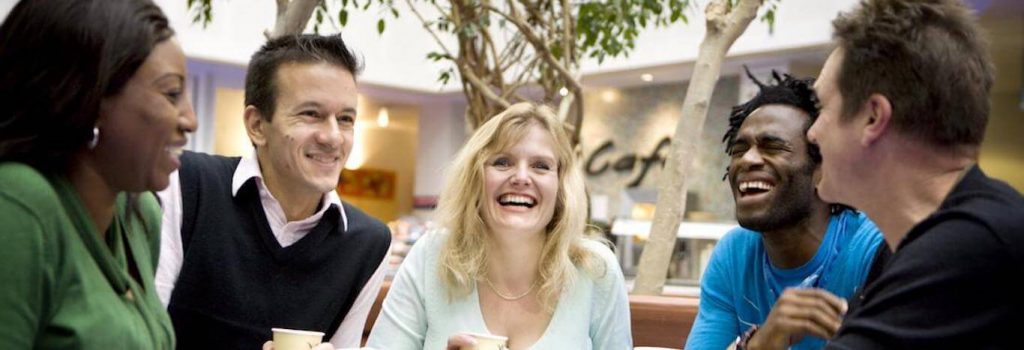Most people value and understand the meaning of Intelligence Quotient (IQ), however when it comes to Emotional Intelligence (EQ), many people struggle to understand what it really means and why it is helpful to us. Emotional Intelligence, according to Psychology Today, is the ability to identify and manage your emotions and the emotions of others.
The value of IQ is internationally recognized and has a system of numbers based on intellectual testing that is designed to determine how smart or clever someone is. The IQ test is standardized and measurable and therefore is easier for many to understand and evaluate. EQ, however, is based on emotions which are not measurable. Emotions can be seen as messy, confronting and very daunting to face if they are strong and overwhelming. However, when you look at people in terms of IQ alone, you miss out on tapping into a whole range of valuable qualities that people may possess. IQ does not measure wisdom, kindness, empathy, compassion, that one could argue are essential for a happy life. They also play a huge part in creating and maintaining a peaceful planet.
Your emotions can be the cause of great joy in your life.
It is through your emotions that you connect with others.
It is certainly possible to be happy and content with yourself regardless of others, however it is usually your connections and intimate relationships with other people that bring depth and joy to our life. Shared experiences give your life meaning. How much
fun is it reliving memories with those who have shared your journey?

Facts about EQ:
1. 71% of managers that hire people, said that EQ is more important than IQ and 59% of hiring managers said they would not hire a potential employee with a high IQ and a low EQ.
2. Every decision you make is guided by your emotions.
3. Your health, finances, and relationships are affected by your emotions.
4. Emotional intelligence can be learned due to the plasticity of your brain.
5. To make improvements to your EQ, you need to know what it is and understand how it works.
EQ is valuable as it helps you to:
1. Remain calm during challenging times.
2. Develop win/win scenarios when working with others because of your genuine empathy (hurting another would be like hurting yourself). It is always possible to find a win/win if you are prepared to take the time to work through mutually acceptable solutions and are committed to the outcome.
3. Lead by example, as you care about being congruent and authentic in your interactions with your team.
4. Be thoughtful in your decisions as you consider the good of the whole, rather than just the best outcome for yourself.
5. Be aware you have the ability to choose your emotions rather than your emotions choosing you, which can lead to you acting out in ways you later regret.
Success and EQ
According to FastCompany.com developing EQ can greatly influence your success. Your personal situations and intelligence are factors as well; however, EQ can profoundly affect your choices by creating options you may not have otherwise imagined or considered to be possibilities.
Many of those who have had a positive effect in changing the course of history, such as Gandhi, Winston Churchill, and Martin Luther King were able to connect and motivate people with EQ, in their decision-making and articulation. They were able to motivate and inspire the masses and continue to do so to this day.

How to improve your EQ
1. Train your mind to focus 100 % on the task you are doing such as driving, cleaning teeth or chopping vegetables.
Acknowledge and see your mistakes as learning experiences
2. Remember you have two ears and one mouth and so ideally, you listen twice as much as you talk.
3. Tap into your emotions and recognize the thoughts that are driving them. This gives you the awareness and ability to change your thoughts to ones that allow you to feel good if you are not feeling centered and calm.
4. Be aware of your body language, if you have your legs and arms crossed, you are blocking the energy flow between yourself and the person you are relating to.
5. Study and implement effective conflict resolution techniques, such as active listening, mirroring, empathy, speaking assertively (rather than with aggression) and finding a win/win solution if possible when you disagree with others.
6. Develop the ability to go beyond right and wrong and respect that everyone sees the world from their unique perspective. This will not only increase your EQ but as an added bonus allow you to enhance your sense of inner peace too.
7. Listen to your intuition, your kind and wise voice within that helps you safely on your path through life while guiding you to interact with others in kind, compassionate and loving ways.
Intelligence is important and has done a lot of great things for mankind. However, Emotional Intelligence is where the real gold lies.
It is through your emotions that you relate to others. If someone is happy, it can be infectious, filling the whole room with joy. Alternatively when someone is angry, hurt or sad, particularly if it is directed at you, it can bring your mood down if you let it.
However, if you start to live your life from the inside out, rather than outside in you can start to gain control and feel empowered, rather than letting your emotions control you.
When you are dependent on the external environment to make you happy—your career, your relationships, the type of car you drive, how much money you have—it can make you feel out of control and unstable. This is because your external world is impermanent, meaning that it can come and go. When you depend on impermanent things for your happiness, if they are taken from you, it can leave you feeling emotionally unstable and out of control. It is perfectly healthy to experience joy and happiness through external sources, however, when it is a bonus rather than the source of your happiness, you will feel stable and in control of your emotions.
You take back control of your emotional world when you decide to live from the inside out. The only one who has complete emotional control over your inner world is you. No-one else can make you feel, as a feeling is something that occurs inside of you. For example, when someone directs their anger at you, one option is that you could feel hurt. Another option is that you could take a moment to choose to remain calm regardless of others emotion even when directed at you. You could think thoughts such as they are angry with me, however, I choose to remain calm. You could choose to transform their anger by responding lovingly.
For example, when someone directs their anger at you, one option is to feel hurt. Another option is taking a moment to choose to remain calm and maintain a sense of perspective. You could think thoughts such as they are angry with me, however, choose to remain calm. You could choose to transform their anger by responding lovingly.
This sounds simple in theory however in practice this can be quite challenging to do in the moment. However with practice, you begin learning to observe your uncomfortable emotions rather than acting out on them (meditation is a wonderful tool for this) and you can, in time, choose your response even if someone is very angry towards you.
You are not responsible for others emotions. Their journey to evolve their EQ is to learn how to process their emotions and respond rather than react to situations. The higher your EQ the more you will interact with the world in a kind and empathetic way. When you understand and are empathetic towards your inner world and how your emotions work, one of the benefits is that you are more naturally kind and understanding towards others.
I believe that emotional intelligence can be summed up by this simple story passed on by my kinesiology teacher:
A behavioural scientist went to study tribes in South Africa. He gathered a group of children together and asked them to race to the end of the field and the winner would get the basket of fruit that was waiting there for them. The children seemed confused and looked at the scientist in a puzzled way. They refused to do as he had asked them. He pressed them for the reason why and they explained: “Mr if one of us were to win, but our friends received nothing, it would make us really sad.” They proceeded to join hands and walk towards the basket of fruit. They all arrived at the same time and proceeded to enjoy a delicious fruit feast together.
When humanity starts to act more collaboratively, many of the issues that plague our world today will be resolved. When it becomes common-place to tap into your Emotional Intelligence and make decisions for the good of not only yourself but for the whole the human race, peace, and harmony will abound.
Emotional Intelligence is important as it is a strong force that has the ability to unite us in amazing ways.







